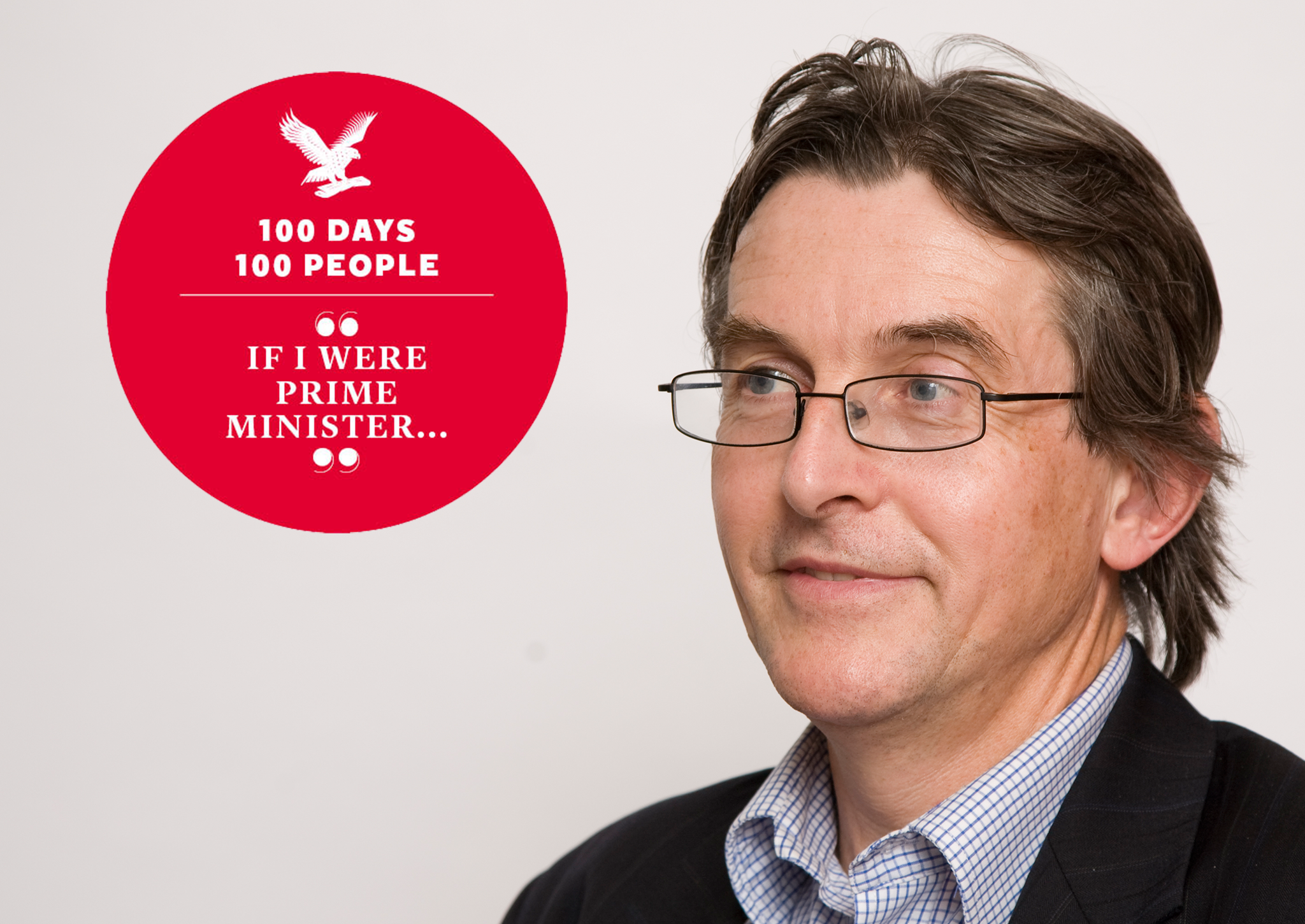If I were Prime Minister: I would spend one year speaking the truth about the UK and then resign
Our series in the run-up to the General Election – 100 days, 100 contributors, but no politicians – continues with the Barrister and Law Professor

Your support helps us to tell the story
From reproductive rights to climate change to Big Tech, The Independent is on the ground when the story is developing. Whether it's investigating the financials of Elon Musk's pro-Trump PAC or producing our latest documentary, 'The A Word', which shines a light on the American women fighting for reproductive rights, we know how important it is to parse out the facts from the messaging.
At such a critical moment in US history, we need reporters on the ground. Your donation allows us to keep sending journalists to speak to both sides of the story.
The Independent is trusted by Americans across the entire political spectrum. And unlike many other quality news outlets, we choose not to lock Americans out of our reporting and analysis with paywalls. We believe quality journalism should be available to everyone, paid for by those who can afford it.
Your support makes all the difference.If I were Prime Minister I would immediately announce my intention to resign, in exactly one year. With my Party safely on side and the succession secured, I would embark on my LAME DUCK QUACKS tour. Once every ten days I would give a speech, 36 in all, picking out key themes for discussion and debate.
My political suicide would have freed me to speak the truth: that Britain is a small place that should stop pretending it is a power, much less a super-power; that the future depends on sibling and not just neighbourly relations with Europe; that immigration is what Britain is, not what Britons should fear; that the country is horribly class-conflicted with the engine of inequality being driven not by the poor but by the upper middle-class with their different schools, accents, health plans and gated communities; that the "free press" is merely the commercial tool of capitalists who trade off the worst instincts of the people for their own gain; that the green belt is a rust belt standing in the way of British homes; that re-industrialization is a fantasy but that the skills to cope with post-industrial Britain can only be delivered by the higher taxation needed to fund the better schools and colleges we need.
My agenda being set in this way I would turn to Parliament. Each speech I make would be accompanied by a bill that I would table, ignoring the need for the support of colleagues.
The radicalism of these proposals would doom them all to failure, and – knowing that – I would convene parallel discussions around the country on the measures that I would be failing to secure. The public would be gradually drawn to these honest if uncomfortable sessions just as they had been to my LAME DUCK QUACKS tour. What begins as eccentric would come to grip the country, honest expression of the difficult being quickly preferred to the deceitful verbiage with which my speeches and bills were increasingly being greeted (by political friends and foes alike).
Lengthening Prime Ministers Questions to one hour, I would refuse to answer fatuous questions, and disdain fawning ones too. If my answer were not being heard in silence I would stop speaking – if necessary for the full hour. The Speaker would at my suggestion seek backbenchers who were not known or used to intervening and specifically seek to draw them in. I would only acknowledge interventions which were signaled gently by hand and would refuse to engage with hecklers or those with a record of heckling.
Questions about whether I was mad would soon come to be replaced by arguments about whether I was right. The culture would be beginning to change just as the giant tutorial it represented was winding to a close. When the final bill is defeated in the House of Commons (to turn private schools into civic spaces for skills-training), I would sign off on Twitter, close down my Facebook account and head back to the LSE where I used to work. Would I get my old job back? Probably not: no publications over a whole year and zero impact. Depends though on what you mean by impact though…
Conor Gearty is a Barrister, LSE Law Professor and Fellow of the British Academy
Join our commenting forum
Join thought-provoking conversations, follow other Independent readers and see their replies
Comments